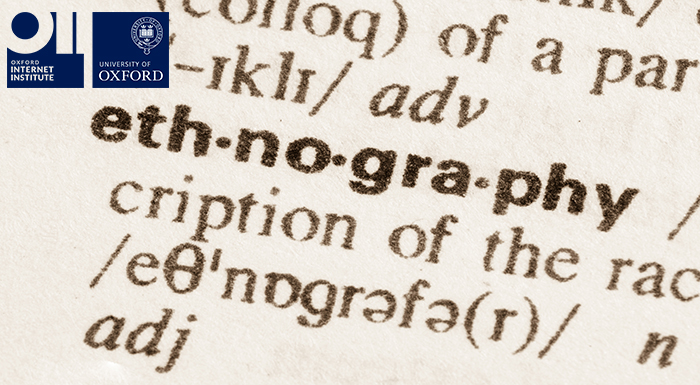
Kate Sim
Former MSc Student
Kate Sim was a DPhil Student at the OII researching the datafication and automation of sexual harassment reporting systems in US higher education. She now works at Google.

EdgeRyders NGI Forward is part of a larger European Commission Horizon 2020 Project on The Next Generation Internet. Within this project, the NGI Ethnography Team is dedicated to responding to three core, intersecting questions: when people talk about the future of the internet, what are their key concerns and desires? What issues do they face, and what solutions do they imagine? And how can we, as ethnographers, visualise and analyse these topics in a way that meaningfully contributes to ongoing debates and policy-making?
As digital ethnographers, we respond to these questions through a range of digital ethnographic methods: we participate in and observe online interaction on EdgeRyders’ open source community platform, engaging with community members from a range of disciplinary backgrounds as they share their insights on issues from artificial intelligence, to environmental tech, to technology solutions for the COVID-19 pandemic. Using our open source coding and visualisation tools, we also perform inductive, interpretive analysis of written online content. At the same time, we are able to yield a broader Social Semantic Network (SSN) of codes to gain a large-scale view of emerging salient topics, which we can then navigate and zoom in on to identify actionable subsets of conversation.
Our approach thus combines qualitative research at scale with participatory design, combining the richness of everyday details gained through ethnographic research with the ‘big picture’ vantage point of network science. We can, thus, dynamically address what people know, what they are trying to do, and what they need, while remaining open to novelty: allowing us to address problems as they emerge, without having to define what those problems are from the outset. During our talk, we will invite attendees to explore our methods with us, while we demonstrate how these allow us to create a dynamic picture of the future of tech, and, in turn, how these enable us to inform current policy-making.

Former MSc Student
Kate Sim was a DPhil Student at the OII researching the datafication and automation of sexual harassment reporting systems in US higher education. She now works at Google.

Former DPhil Student
Amelia Hassoun's research analyses the design, development, and usage of sensor technologies embedded in Singapore’s urban landscape as part of its Smart Nation project, as well as the social life of the data they produce.

PhD, ISCA, University of Oxford